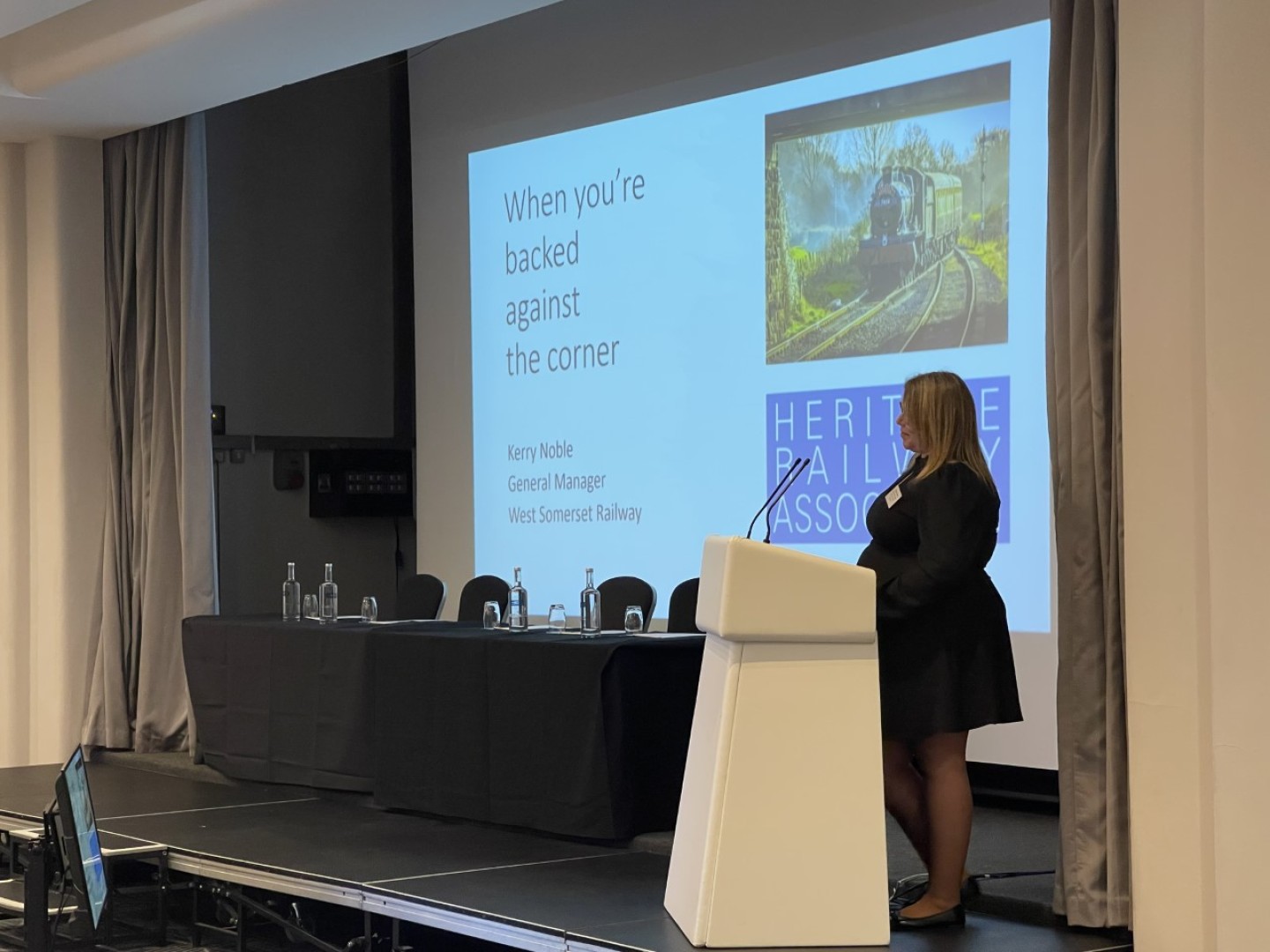
The biggest and best attended Heritage Railway Association conference ever has led to new agreements on sharing safety information among heritage railways and discussed ways to meet the enormous financial challenges the sector faces.
More than 200 representatives of heritage railways throughout the UK attended during the two-day event in Birmingham on November 1 and 2. They heard from no less than 23 speakers and contributors covering everything from the latest innovations in structural engineering to marketing strategy, and from volunteer recruitment to the economic and cost challenges ahead in 2023.
The speaker list included the largest ever presence by the heritage rail industry’s regulator, the Office of Rail and Road. Deputy Chief Inspector of Railways, Richard Hines; Head of Non-Mainline Railways Patrick Talbot; and Principal Inspector of Railways Simon Barber, all took to the stage during the event, answering questions from the audience and focussing on the challenges of ensuring safety remains strong in a sector where heritage is key and a large number of volunteers continue to play an essential role.
Chief Executive of the Heritage Railway Association, Steve Oates, said: “These conferences have rapidly become the most important way that the heritage rail sector shares best practice. They’re also the best opportunity anywhere to hear from the top thinkers and most influential figures in our sphere.
“I was really heartened by how engaged the Office of Road and Rail were with this conference, and also how openly so many railways spoke about the methods they’re using to tackle the huge challenges being faced in the sector right now.”
The conference also featured a panel discussion with five leading heritage sector chairmen and chief executives. Paul Lewin from the Ffestiniog and Welsh Highland Railways, Nick Ralls from Ironbridge Gorge Museum Trust, Simon Marsh from the Kent and East Sussex Railway, Chris Price from the North Yorkshire Moors Railway, and recently appointed Watercress Line CEO Amanda Squires, took on a series of challenging questions about how the sector faced the economic climate head-on. Amid strong calls by the panel for boards, staff, volunteers, members and supporters across the sector to pull together and share ideas and challenges, the session covered the need for clear and supportive governance, the need for confident decision-making on pricing, and the importance of giving customers and visitors an excellent experience when they visit. In another session, West Somerset Railway General Manager, Kerry Noble discussed how her line had begun to turn itself around after a difficult few years, both financially and organisationally.

Delegates also heard how a new safety information sharing process has been developed by the Heritage Railway Association, through its Operating and Safety Committee. The new process will ensure that HRA members are brought up to date with latest safety thinking in the sector, including sharing learning outcomes from ‘near misses’ that are currently often only shared internally.
Keynote speaker for the event, Network Rail Chairman Sir Peter Hendy, provided a frank assessment of how the national network is currently performing, and how it can work with heritage railways. Sir Peter also focused upon forthcoming plans to celebrate the 200th anniversary of the Stockton and Darlington Railway. He told attendees that Network Rail is at the heart of plans to ensure that the anniversary celebrations can reach every corner of the UK and inspire new audiences for both the national network and heritage railways.
There was also a strong focus on ‘people’ at the event, including a hard-hitting session from Stuart Hendry of the West Somerset Railway, who formerly had a senior signalling role on the national network. Using personal experience of being on site during rail disasters on the national network, he talked about the importance of recognising when someone needs support with their mental health.
Mr Oates added: “If I was to highlight one takeaway point from the conference, it would undoubtedly be the focus and passion on ensuring everyone pulls together to get through the huge externally driven challenges heritage rail faces. From coal to staffing and of course the huge cost of living impact on our customers, it’s a difficult period to be a heritage railway and it’s certainly not a time for divisiveness. But lots of speakers were very clear that they are grasping the challenges and adapting quickly to ensure their railway survives and thrives.”
The Heritage Railway Association runs a series of events every year covering the major issues in the sector. Previous events have seen the focus on coal, equality, the environment and business diversification. The next HRA events will be a series of workshops across the winter months in conjunction with the ORR and the RAIB, followed by the Spring Conference, which is due to take place on March 10 and 11 2023 in Birmingham. The next Autumn Conference will take place elsewhere in the UK, with a venue currently being confirmed.
Back